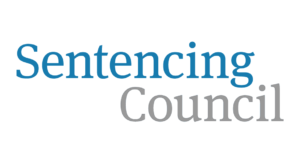The prosecution, via the Attorney General, has the right to ask the Court of Appeal to consider whether sentences for certain offences are unduly lenient.
How does the scheme work?
Anyone can ask the Attorney General to consider whether a case has resulted in an unduly lenient sentence. If the Attorney agrees an appeal will be lodged within 28 days of that sentence and the court will consider the matter.
This scheme is essential protection against sentences that are too lenient.
We have previously posted about the scheme here.
Can it be used for any offence?
There is a list of offences that the unduly lenient sentence scheme applies to. It is a relatively extensive list, but the government has announced that further offences are soon to be added to it.
How often are appeals lodged?
The Attorney General does not invite the court to interfere lightly. Even though around 1,000 requests for a review are made each year only a fraction are referred to the court. Typically between 100 and 150 sentences are increased each year.
In all cases where an appeal is heard, we will fight extremely hard to prevent any increase in sentence.
What offences are to be added to the list?
The following offences will be added:
- Abuse of position of trust: sexual activity with a child (s.16 Sexual Offences Act 2003),
- Abuse of position of trust: causing or inciting a child to engage in sexual activity (s.17 Sexual Offences Act 2003)
- Abuse of position of trust: sexual activity in the presence of a child (s.18 Sexual Offences Act 2003)
- Abuse of position of trust: causing a child to watch a sexual act (s.19 Sexual Offences Act 2003)
- Inciting a child family member to engage in sexual activity (s.26 Sexual Offences Act 2003)
- Sexual activity with a person with a mental disorder impeding choice (s.30 Sexual Offences Act 2003)
- Causing or inciting a person, with a mental disorder impeding choice, to engage in sexual activity (s.31 Sexual Offences Act 2003)
- Engaging in sexual activity in the presence of a person with a mental disorder impeding choice (s.32 Sexual Offences Act 2003)
- Causing a person, with a mental disorder impeding choice, to watch a sexual act (s.33 Sexual Offences Act 2003)
- Possession of indecent photograph of a child (s.160 Criminal Justice Act 1988)
- Taking, possessing, distributing, publishing Indecent Photographs of Children (s.1 Protection of Children Act 1978)
- Harassment: putting people in fear of violence (s.4 Protection from Harassment Act 1997)
- Stalking involving fear of violence or serious alarm or distress (s.4A Protection from Harassment Act 1997)
- Controlling or Coercive Behaviour in an Intimate or Family Relationship (s.76 Serious Crime Act 2017).
How we can help
If you have instructed VHS Fletchers in your case after your sentencing we will give you immediate advice if we have concerns that there may be a complaint that you have received an unduly lenient sentence. Unfortunately, the process is out of our hands however and we have no control over whether or not a reference is made.
In the event of an appeal, a great deal of work can be done on your behalf to prepare your case for this next stage. Thorough preparation can make all the difference as to whether or not the court of appeal interferes with your sentence.
If you face an appeal on the basis that you received an unduly lenient sentence or are concerned about any aspect of criminal law or sentencing then do not hesitate to contact your nearest office to speak to a criminal law specialist.
Alternatively you can use the contact form below.
Contact



